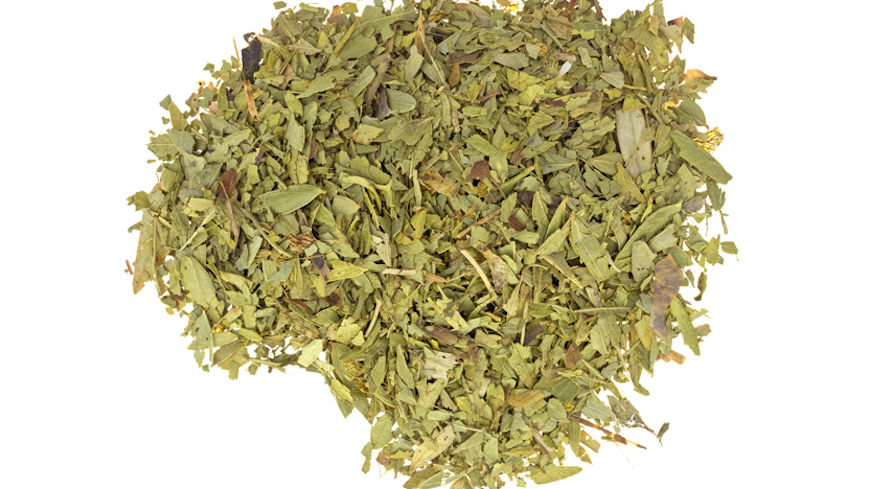
By Antoinette Spicer
Former Research Writer | Kaituhi Rangahau
In the age of Instagram, losing weight seems just a click away. Diet teas, also known as “detox teas”, are advertised as a simple way to help you lose weight and “cleanse your body of harmful toxins”. However, our investigation found these products can be little more than laxatives in disguise.
What we found
On shelves at supermarkets, Healtheries Naturally Slim teas claimed to contain a “fresh-tasting blend of herbs formulated to complement your weight management program”. The teas were also advertised as a “detoxifier” that “assists with liver and kidney cleansing”.

Healtheries Naturally Slim teas contained senna leaf, a natural laxative that can lead to liver damage if taken for too long.
Their key ingredient? Senna leaf, a natural laxative that can have nasty side effects and lead to liver damage if taken for too long. Because senna contains sennosides, a pharmacy-only medicine, companies need consent to advertise or sell it, Medsafe compliance manager Derek Fitzgerald said.
However, the owner of the Healtheries brand, Vitaco Health, didn’t have approval to sell the teas and didn’t appear to be aware of the rules either. The company initially said it would continue to supply the teas but later changed its mind after we questioned its decision.
Vitaco regulatory affairs manager Michael Syme said it would withdraw the teas and no longer use senna. The products withdrawn were Healtheries Naturally Slim Lemon Tea, Healtheries Naturally Slim Superfruit Acai and Blueberry Tea, and Healtheries Herbalax Senna Peppermint Tea.
Mr Syme later told us Healtheries had sold teas containing senna for “more than 15 years” and had sold “6.3 million Healtheries Naturally Slim tea bags” since 2017, with one consumer complaint about suffering “laxation” from the product.
Countdown and Foodstuffs (owner of the New World and Pak’nSave brands) confirmed they’d removed the teas from shelves.
At Health 2000, we bought detox tea Senna Klenz, advertised as “a special blend of herbs with a natural lemon and lime flavour … great to take before or after a meal”. A salesperson said the tea would help “flush out toxins” and could be safely consumed up to three times a day over a short period.
After we contacted Health 2000 and pointed out the product contained senna, managing director Alan Morpeth said he had “taken a precautionary action and advised our stores to remove the product from our shelves”.
Influencer and personal trainer Sera Lilly was also advertising a senna “teatox” on her website Fat2fitnz.co.nz. Ads claim the tea “is not a weight loss or laxative tea” but is "designed to cleanse your body of all the impurities and toxins” and has “helped thousands of people with bloating, detoxing, weight-loss, sugar cravings and more”.
Advertising or selling pharmacy-only medicines, such as senna, without
consent can result in a fine of up to $100,000.
A Facebook page run by Ms Lilly boasts multiple before-and-after weight-loss photos. Customer reviews claim the tea helped with bloating and indigestion – in one case after just "seven days”.
Ms Lilly didn’t initially respond to our questions about her tea-tox but later told us she had removed the tea from sale and was “working with a naturopath to reformulate our tea before relaunching it”.
Ms Lilly said she was “very surprised to find that the use of senna leaf in any natural health product … meant the product became pharmacy-only” but didn’t consider her tea-tox a “laxative in disguise”.
Advertising or selling pharmacy-only medicines, such as senna, without consent can result in a fine of up to $100,000.
If you’ve bought these products, you’re entitled to a refund.
Laxative products
As well as diet teas, we found several herbal teas promoted as laxatives that contained senna, including Red Seal’s Alpine Lax-A-Tea. Red Seal executive general manager Jez Hawkins said it had sold the tea for 20 years but removed it from sale after we contacted the company.
At Commonsense in Lower Hutt, we bought senna leaves and Smooth Move tea. Commonsense merchandise manager Teva Stewart said it wasn’t aware senna was a restricted medicine and removed the products from sale.
Smooth Move, along with Senna Klenz, was also on the shelf at Vibrant Health in Petone. Owner Melanie Brunenberg said she thought it was “silly” senna was a pharmacy-only medicine and didn’t plan on removing the tea from sale.
Following our conversation, Ms Brunenberg removed both products from sale and said she would no longer sell them.
Ceres Organics and online retailer kerrindale.co.nz both listed senna products on their websites. Ceres removed the product. However, Kerrindale did not respond to our inquiries. We’ll be reporting Kerrindale to the ministry.
Unproven claims
Despite claims diet teas can help you lose weight and “detoxify” your body, there’s no reliable evidence they provide any benefits.
Otago University professor of medicine and human nutrition Jim Mann “strongly advises’' against taking any diet or detox teas. He said he’s never seen any good scientific evidence to support the claimed health benefits and “would be very surprised if any evidence exists”.
"There is no need to ‘detox’ our bodies as we already have an immune system, liver and kidneys, which naturally detoxify our bodies by themselves."
Dr Andrew Dickson - health sociologist at Massey University
Dr Andrew Dickson, a health sociologist at Massey University who specialises in weight-loss products, agrees. He advises people against using these products unless they’re recommended by a medical practitioner.
Detoxing claims don’t hold weight either. “There is no need to ‘detox’ our bodies as we already have an immune system, liver and kidneys, which naturally detoxify our bodies by themselves,” he said.
The use of natural laxatives in these products is also problematic because they cause people to excrete important electrolytes, including sodium, potassium, and magnesium, he said.
“Ironically, detox products can be toxic if people consume them in excessive doses. People who have kidney or liver disease are particularly vulnerable.”
Drugs illegally added to weight-loss products are also a major concern, Dr Dickson said. In October, Customs and the Ministry of Health issued warnings after finding phenethylamine – a class C controlled drug – in the diet coffee brand Valentus SlimRoast Optimum Dark Roast Coffee.
Side effects “unpredictable”
Dietitian Helen Gibbs said the effects from consuming diet teas are often “unpredictable” because herbs can have variable amounts of active compounds. Side effects can depend on how long you steep the tea and how diluted or concentrated it is, she explains.
Otago University toxicology lecturer Dr Sarah Baird said two studies on senna leaves found sennosides – their active ingredient – can cause inflammation in the gut and blistering of the perineum.
Liquorice root, used along with senna in two teas we found, has also been shown to interact with medications. “There is evidence that shows consuming liquorice can interact with numerous medications, including birth control,” Dr Baird said.
Depending on the dose, liquorice root can change hormone levels in the body and decrease the effects of oestrogen pills, she said.
Liquorice root can also change the way liver and gut enzymes break down other medications, increasing or decreasing the effects and dose, making the medication less effective or more toxic to the person taking it.
Diet teas, like other herbal products, play up their “natural” ingredients. However, as Dr Baird points out, just because something is natural doesn’t mean it’s harmless.
Between January and September 2018, the Centre for Adverse Reactions Monitoring recorded 50 complaints about adverse reactions associated with dietary supplements and herbal preparations.
We say
If your goal is to improve your health and lose weight, don’t waste your money on diet teas. And ignore detox claims – your body naturally gets rid of toxins.
To protect consumers from misleading claims, we want to see better regulation of herbal products.
Five common diet tea ingredients
Senna leaf
Contains sennosides, a pharmacy-only medicine used to treat constipation. There’s no evidence supporting weight-loss claims for senna. Side effects of consuming senna include stomach cramps and diarrhoea. Studies have linked prolonged use of senna leaf to liver injury, electrolyte disturbances, changes in heart rhythms and laxative dependency.
Dandelion root
Traditionally used as a diuretic and for minor digestive ailments. The US National Institutes of Health states dandelion is considered safe as a food (though some people are allergic) but “there is no compelling scientific evidence supporting the use of dandelion for any health condition”.
Liquorice root
Lacks evidence supporting its use for weight loss and the herb is known to interfere with other medications. In 2017, the US Food and Drug Administration warned consuming excessive amounts of liquorice could cause abnormal heart rhythms, high blood pressure, swelling, lethargy and congestive heart failure.
Milk thistle
Claimed to help support liver cleansing and regeneration of liver cells. However, good evidence showing milk thistle has any impact on liver function is lacking.
Yellow dock
Promoted as beneficial for the lymphatic system. However, evidence linking yellow dock to any medical benefits is lacking. It also contains oxalic acid. Excessive consumption of oxalic acid can cause severe health issues. Doctors have reported cases of people suffering from vomiting, abdominal pain, kidney stones and kidney failure.
Herbal teas and your teeth
The New Zealand Dental Hygienists Association recommends Kiwis reduce their consumption of herbal teas because of the food acids they can contain.
President Anna Holyoake said many people are unaware of the impact of acidic foods, which can damage tooth enamel. Food acids, added to products to make flavours “sharper”, are a major cause of the problem, she said.
“Additives are found in a wide variety of food and beverages, even those without high levels of sugar such as herbal teas, which can be as acidic as soft drinks.”

We can't do this without you.
Consumer NZ is independent and not-for-profit. To help us get a fairer deal for all New Zealand consumers, you can make a donation. We’ll use your contribution to investigate consumer issues and work for positive change.